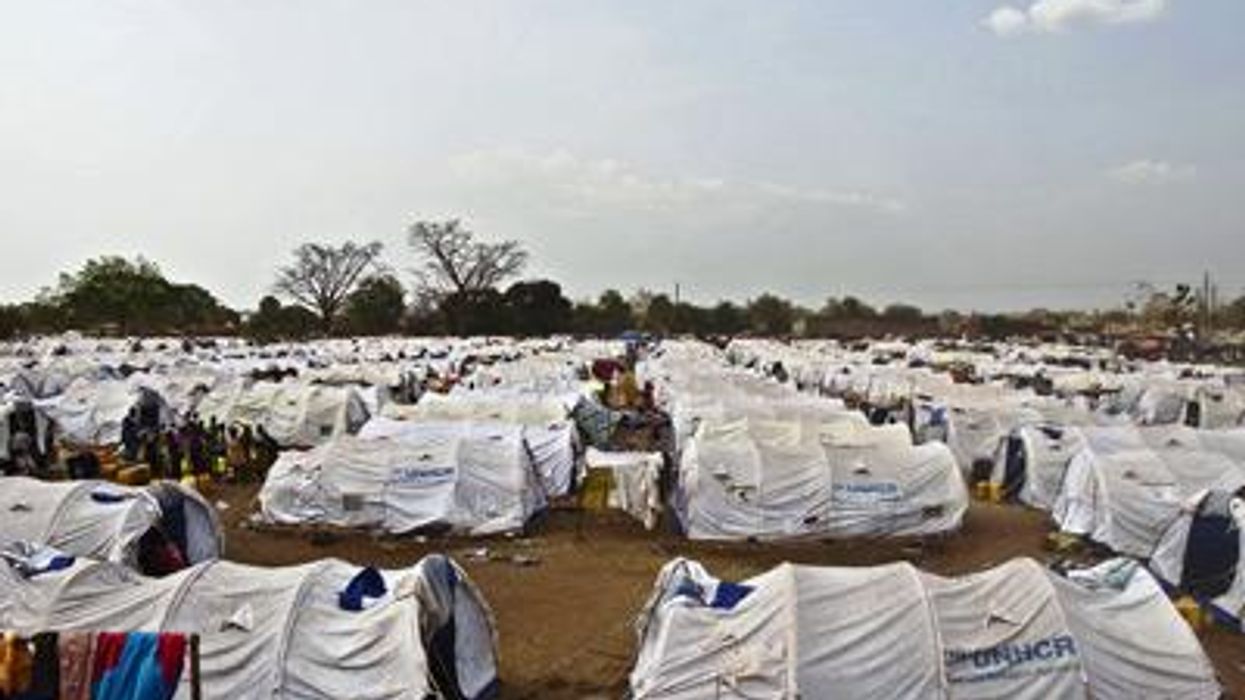More than two weeks after Secretary of State John Kerry announced that the U.S. was beginning an "internal review of our relationship with the Government of Uganda" in response to the East African nation's passage of its "Jail the Gays" law, the Obama administration confirmed the first aid cuts have been made, according to Reuters.
"As a result of this review process, a portion of the U.S. Centers for Disease Control's cooperative agreement with the Ministry of Health has been put on hold pending this review," an unidentified "senior U.S. government official" told Reuters.
Although the official did not specify a dollar amount, a spokeswoman for Uganda's health ministry said the financial hold would affect 50 of its workers and confirmed that Ugandan health ministry officials had been told they would no longer be able to access a portion of funds used to buy antiretroviral drugs and HIV testing kits, reports Reuters.
The hold on at least a portion of the $3.9 million in aid from the CDC to Uganda's health ministry directly contradicts the latest guidelines from Ugandan LGBT activists, who warned against general aid cuts as well as cuts to programs that would negatively affect the already marginalized LGBT community and the fight against HIV and AIDS.
"We DO NOT support cuts in support to NGO's and other civil society institutions that offer life saving health services or other important social services to the people of Uganda," wrote the activists in the guidelines issued by Uganda's Civil Society Coalition on Human Rights & Constitutional Law. That coalition is the lead sponsor of a constitutional challenge to the law filed in Uganda's Constitutional Court earlier this week.
Instead, the coalition encouraged strategic aid cuts, like those made by the Dutch and Swedish governments, who along with governments in Norway and Denmark announced a cumulative $27 million in cuts that would be diverted from Uganda's Justice sector since the law was passed last month, instead redirecting most of those funds to nonprofits and nongovernmental organizations fighting for health and human rights in Uganda.
However, the U.S. decision does follow a similar call made by the World Bank, which last month announced an "indefinite delay" of a $90 million health care loan to Uganda, citing the possible impact on the "development objectives" that could be "adversely affected by the enactment of this new law."
As passed, the Anti-Homosexuality Act imposes lifetime prison terms on those convicted of "aggravated homosexuality," which the law defines as those who engage in repeated instances of same-sex sexual contact, any such contact where one person is HIV-positive, a minor, mentally disabled, or under the influence of drugs or alcohol. Anyone charged with the offense must undergo a medical examination -- which in practice is usually a forcible anal examination -- and HIV test, regardless of the individual's consent.
The law also imposes harsh sentences on those convicted of aiding, abetting, or conspiring to engage in homosexuality -- including providing housing, support, or affirmation to an LGBT person or organization. As a result, at least three LGBT Ugandans have been evicted from their homes, with landlords citing the Anti-Homosexuality Act as the primary reason for their eviction.
Additionally, the law declares that any person or organization performing a same-sex marriage is liable to lose their licensure and spend as many as seven years in jail. The law also enumerates the numerous ways in which the "promotion of homosexuality" is forbidden, clamping down on individuals, organizations, and media outlets that discuss LGBT identities, and provides for extradition of Ugandan nationals who violate the law abroad.





































































Charlie Kirk DID say stoning gay people was the 'perfect law' — and these other heinous quotes